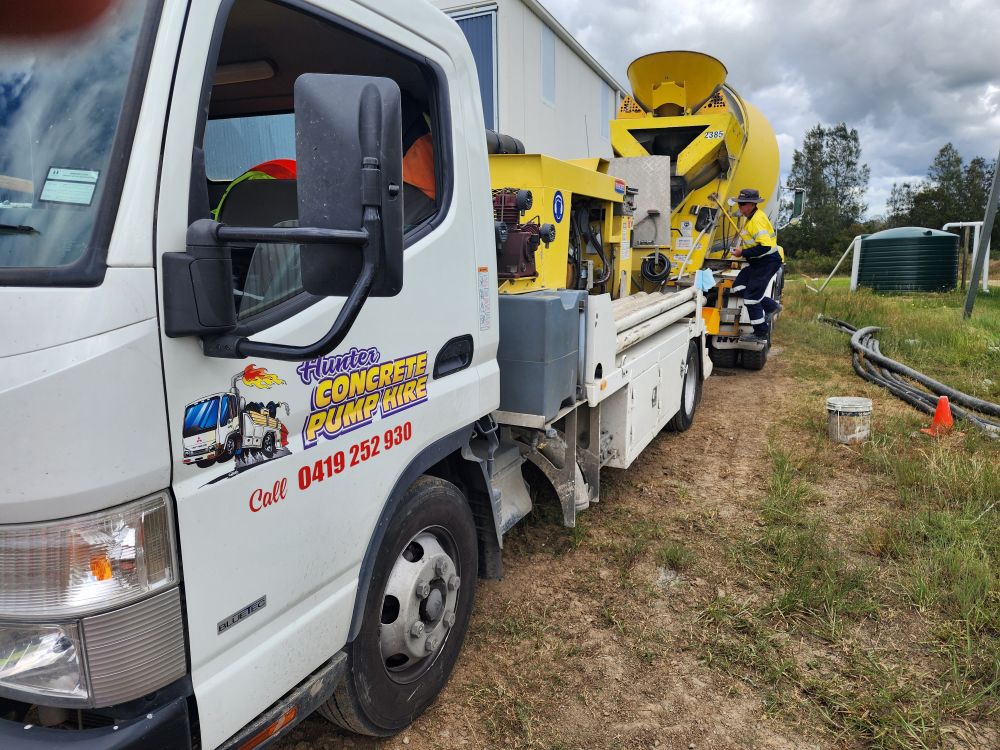Essential Strategies to Avoid Critical Errors When Hiring a Concrete Pump
To achieve a flawless and efficient concrete pouring experience, it is crucial to avoid any delays and unexpected costs that may arise. This can be accomplished by selecting the appropriate pump type, meticulously planning site access, and confirming the specific requirements for the pour. Even minor oversights can lead to significant disruptions during concrete jobs, potentially jeopardising project timelines and budgets. By dedicating time to address these vital factors, you not only avert potential headaches, but you also save on additional expenses in the long run, ensuring a smoother workflow and enhanced productivity.

1. Selecting the Most Suitable Type of Concrete Pump for Your Specific Project
The decision regarding the right type of pump is significantly influenced by the unique dimensions and layout of your construction site. For instance, line pumps are particularly beneficial for residential projects, such as driveways, footings, or situations where site access is restricted. On the other hand, boom pumps are ideally suited for larger commercial applications, including substantial slabs, elevated pours, or expansive open areas. By accurately evaluating and determining the correct pump type tailored to your project, you can ensure that the concrete pour proceeds with maximum efficiency and minimal complications, ultimately leading to successful project delivery.
2. Accurately Calculating the Required Concrete Volume for Your Pour
Inaccurately assessing the necessary volume of concrete can result in frustrating delays and the formation of cold joints that compromise quality. If the volume is underestimated, you may need to order additional mixes, whereas overestimating can lead to waste and inflated costs. It is vital to meticulously measure the length, width, and depth of the pour area. If required, consult with your concrete supplier for confirmation. This careful attention to detail not only helps avoid unnecessary expenses but also ensures that your project adheres to its timeline, maintaining momentum and efficiency throughout the entire process.
3. Prioritising Comprehensive Planning for Site Access
When hiring a concrete pump, it is essential to give thorough consideration to site access requirements. Boom trucks necessitate a stable ground surface, adequate overhead clearance, and sufficient space for the safe extension of their booms. Conversely, line pumps require a clear pathway for the hose from the pump to the pour location. For tighter residential projects, conducting a preliminary walk-through can help identify potential access challenges, ensuring that operations on the day of the pour are smooth and efficient. This proactive approach minimises the risk of last-minute complications that could hinder progress.
4. Avoiding Delays by Making Timely Booking Arrangements
It is important to understand that the most reputable operators often become fully booked very quickly, particularly during peak building seasons in areas like Hunter and Newcastle. Failing to secure your pump hire in a timely manner significantly increases the risk of being without the necessary equipment, which may lead to costly delays in your project timeline. To circumvent such situations, it is wise to finalise your booking well ahead of time, which facilitates a more streamlined schedule and ensures that you have the equipment available when needed.
5. The Importance of Conducting a Thorough On-Site Visit
While sharing photographs of the site can provide some insights, nothing compares to the invaluable experience of a physical site visit. This brief on-site assessment allows you to uncover crucial factors, such as hose routing needs, vehicle access points, suitable washout areas, and the distance from the truck to the slab. By proactively visiting the site, you can identify and address any potential issues beforehand, ensuring a seamless and efficient concrete pouring process that meets your project requirements.
6. Planning for Washout and Cleanup Procedures Effectively
Concrete pumping will invariably generate waste, making it vital to have a well-structured washout plan in place. This plan should ensure that the slurry produced during the pumping process does not contaminate finished areas or clog any drainage systems, which could lead to further complications. Most operators will inquire about your preferred washout location, so it is essential to communicate your requirements clearly to prevent any mishaps during the cleanup process. This foresight will help maintain the overall integrity of your project site.
7. Confirming Labour and Project Scope Clearly Before Hiring
Before you finalise your hire, always ensure that you verify what services are included in the package. Some agreements may cover only the operator, while others might encompass an entire crew with specific roles. It is crucial to clarify whether the hired team will assist with essential tasks such as hosing, vibrating, or finishing the concrete. By having a clear understanding of who is accountable for each aspect of the project prior to the arrival of the concrete, you can avoid misunderstandings and ensure that everything operates smoothly and efficiently.
Why Choose Hunter Concrete Pumps for Your Mini Pump Hire Needs
Hunter Concrete Pumps offers a straightforward and transparent hiring process, simplifying the experience for you as you receive the support you require:
- Flat Rate Hiring Option: Enjoy a competitive rate of $800 for the first load, covering up to 3 hours on-site, with a subsequent charge of $50 for each additional load, providing you with predictable costs.
- Hourly Rate Hiring Option: Choose an hourly rate of $190 (with a minimum requirement of 3 hours), plus an additional $190 for travel and $6 per m³ pumped, allowing for flexible payment options.
If you are uncertain about the equipment you require, the dedicated team at Hunter Concrete Pumps is on hand to assist you throughout your project. They can guide you in selecting the most suitable pump, provide accurate estimates for your concrete volume needs, and even coordinate concrete supply along with experienced labour to ensure a hassle-free experience from start to finish.
Commonly Asked Questions Regarding Concrete Pump Hiring
What is the most cost-effective option for hiring a concrete pump for a small project?
For smaller residential pours, a mini line pump typically represents the most economical choice. Hunter Concrete Pumps offers a flat-rate option starting at just $800 for the first load, making it an attractive option for customers who are budget-conscious.
Can Hunter Concrete Pumps assist with coordinating my pour from start to finish?
Absolutely! Hunter Concrete Pumps is fully equipped to support you in selecting the right pump, estimating the necessary volume, arranging concrete delivery, and providing crew members to efficiently manage hose operations and cleanup tasks.
Building Strong Partnerships with Concrete Pump Professionals
Hiring a concrete pump can be a seamless process when you concentrate on the essentials: site access, precise volume calculations, crew coordination, and timely bookings. By getting these fundamental elements right, you can effectively avoid the common pitfalls that frequently delay projects and increase costs. With the right team supporting you, your concrete pour can be executed flawlessly on the first attempt. This reliability is why Hunter Concrete Pumps has established strong partnerships with numerous developers throughout Newcastle and the Hunter Region, reinforcing their reputation in the industry.
Concrete Pump Hire
The Article: Avoid These Common Hiring Mistakes for Concrete Pumps first appeared on https://writebuff.com
The Article Avoid Common Concrete Pump Hiring Mistakes Was Found On https://limitsofstrategy.com

